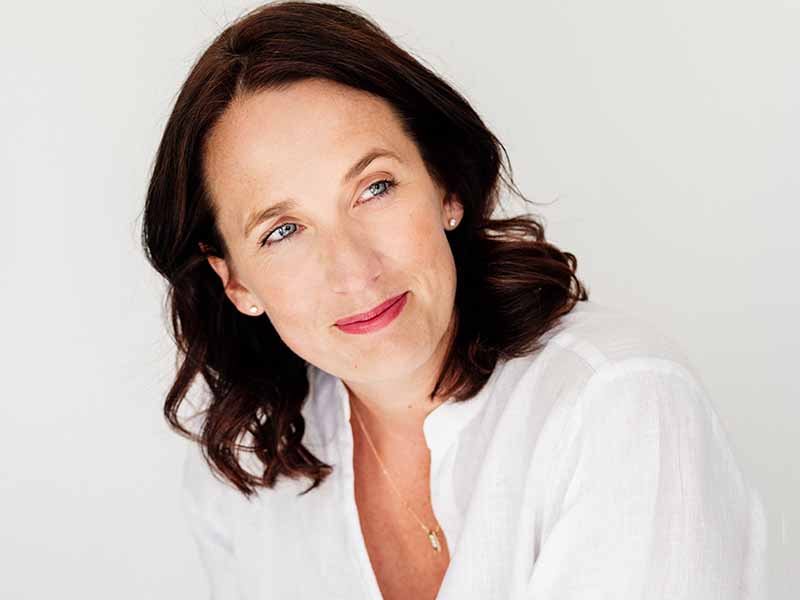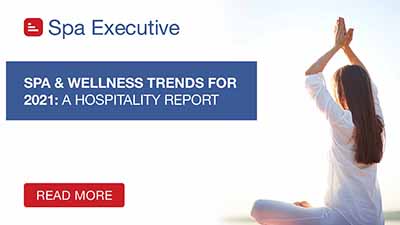
Wellness industry leader, Lindsay Madden-Nadeau talks about Meraki, her new company creating bespoke wellness solutions, and what makes an authentic wellness experience.
Lindsay Madden-Nadeau has spent the past 20 years travelling the globe working for some of the biggest names in hospitality and wellness. She was most recently the Global Director of Wellbeing for the luxury division of Accor, overseeing global wellbeing strategy for Raffles, Fairmont and Orient Express. She has been a judge for the World Spa & Wellness Awards, a contributor to several industry publications, and a public speaker at events around the world, including the Global Wellness Summit, World Spa & Wellness, Professional Beauty, and Fit Summit.
She recently left the hotel world and founded Meraki, a bespoke wellness consultancy with a mission to create conscious, collaborative projects that continue to put wellness on the map. Madden-Nadeau makes it her mission to ensure each project has a strong differentiation and strategy at its heart. After spending 13 years in Dubai, Madden-Nadeau recently moved to the South of France and is dedicated to a life of wellbeing.
We asked Lindsay Madden-Nadeau about Meraki and what she’s excited about.
Why did you start Meraki?
I’ve always had an ambition to start my own urban wellness retreat, something on a small, boutique level. But then COVID happened and, after I moved to France, I started rethinking things. I still have those plans but for now I’ve decided that I’m going to stay here for the next year and really just listen and learn before pursuing that further. That meant that Meraki needed to come to the forefront.
The reason that I launched Meraki is because I’m lucky enough to be one of those people that genuinely loves my job. I wanted a change from the corporate sector, and the freedom to make my own decisions and do what I’m good at. I want to work on genuine wellness projects and I think wellness thrives best in independent businesses, like private yoga, meditation, or wellness retreats, or in very small boutique hotels. The ambition with Meraki is to work with businesses for which wellness is the main positioning.
Can you talk a bit about what you’re working on and what is special and exciting about Meraki?
My specialty is working with clients to design their specific brand of wellness. A lot of spa brands or spa product brands are saying, “We want to be a wellness brand.” Wellness has had a spotlight on it for a while and everybody wants to attach wellness to their brand. I’m trying to convince people to take a step back and ask what wellness means to their business and how it aligns with their values. “How does your wellness differentiate you from other businesses?” Let’s understand what wellness means to your brand so you can represent it authentically.
We go through different exercises where we pick out that positioning, that driving point, that makes a business unique. And then we create something bespoke and unique to them.
What makes an authentic wellness experience?
To me, an authentic wellness experience is about incorporating values and seeing them through from end to end. When a brand identifies its values and incorporates that into their programming, communication, collaborations, and partnerships, that becomes a very authentic model.
How do you think the current situation is affecting your industry?
I think a lot of people that previously weren’t considering wellness before are now considering it. In the next couple of years, wellness is going to continue to rise. And I feel that’s where I come in. There will be generic models out there for people just looking for a generic experience, but the people that are looking for really unique design and unique programming, that’s where Meraki will come in.
What are some of the challenges you see the industry facing in the next while?
I think there will be an oversupply of wellness and too many brands over commercializing wellness. It’s already happening. Wellness used to be something that was genuine for your health. Now it’s becoming commercialized. Everyone’s using the buzz words and it’s become inauthentic. We’re going to see an abundance of yoga instructors. Anyone can now learn yoga online. That’s going to dilute wellness. The brands that will stand out are those that take the time to do it well and find that distinct positioning.
What are some of the developments or trends you’re excited about?
I’m excited to build brands that are distinctly different. And I’m excited about the idea of bringing in healing arts, which already exist within some wellness models. More and more people are getting into the essence of music and dance and sculpting, and that, in itself, is a form of wellness. I’m most excited about seeing smaller boutique models thrive because I feel that’s where wellness really has the opportunity.
It’s time to look into our crystal balls and predict the future for the year ahead. Subscribe to our newsletter and download our special report on the trends we’ll be watching: Nine spa and wellness trends for 2021. Download here.
Spa Executive is published by Book4Time, the leader in guest management, revenue and mobile solutions for the most exclusive spas, hotels, and resorts around the globe. Learn more at book4time.com




